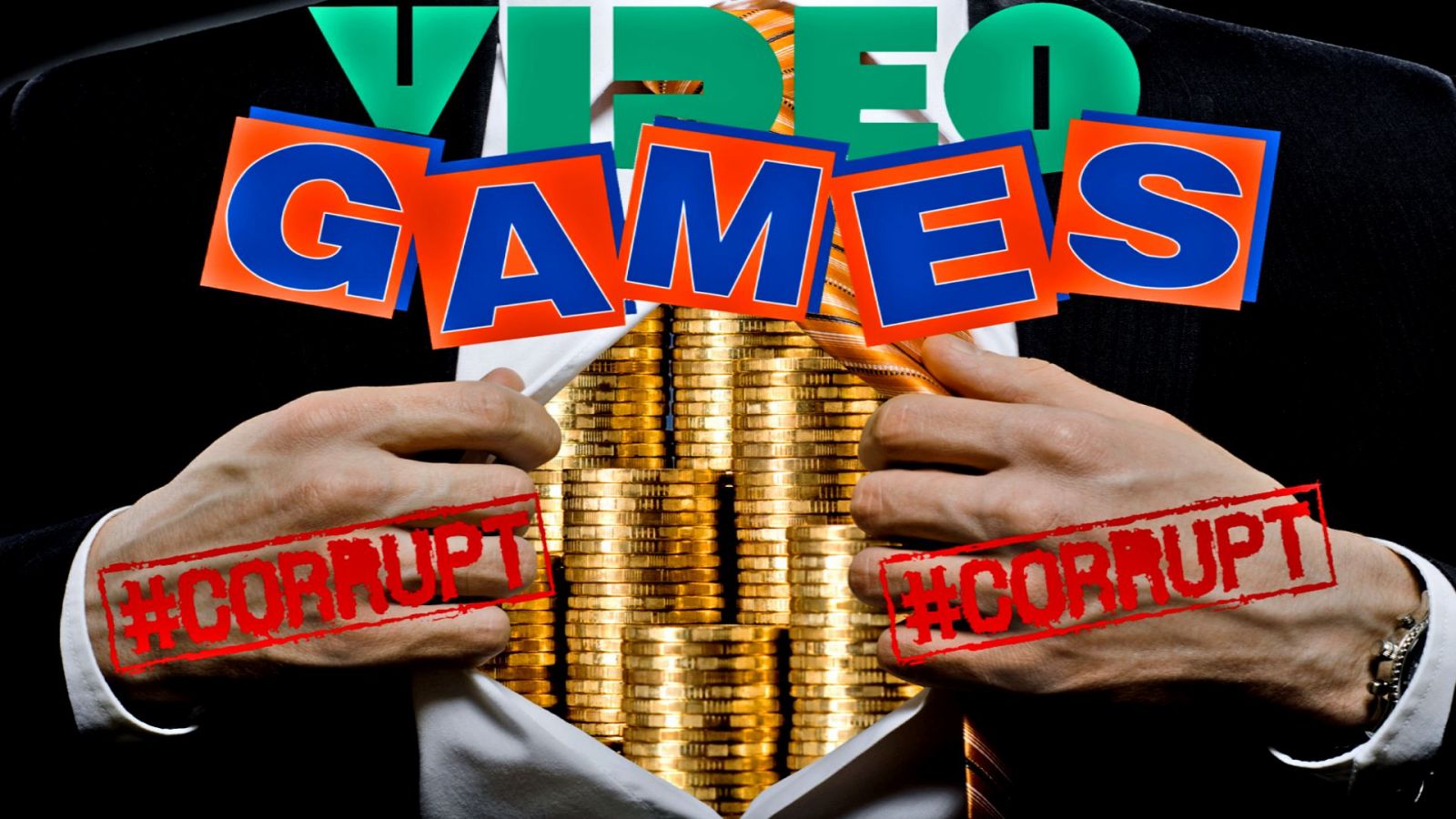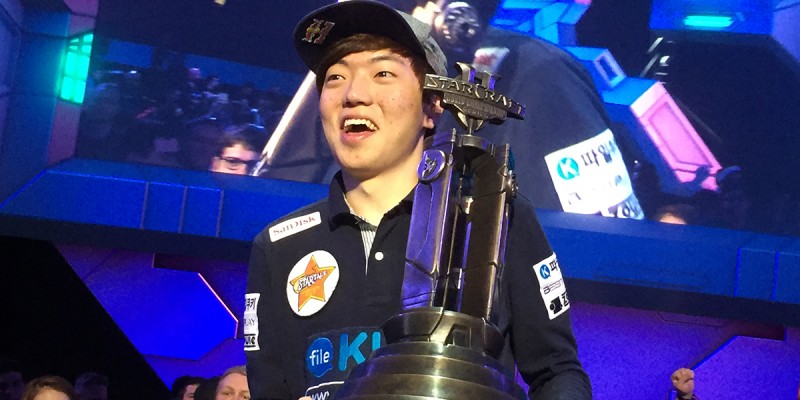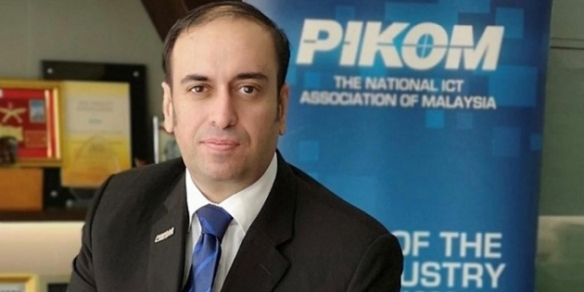Can corruption in videogames be curbed?
By Digital News Asia August 24, 2016
- Illegal gambling and match fixing rampant in videogames
- No global controlling body for eSports like other sports

At the beginning of the last century, there was a sport beloved by millions. As the population of the United States rose, this sport also gained a lot of popularity among the (mostly) American public. Its players became superstars almost overnight and big money started to flow in.
And then came the scandal of the 'Black Sox' affair. The tournament favourites, Chicago White Sox, lost the 1917 final to the Cincinnati Reds. Eight White Sox players were accused of match fixing and deliberately losing the game. Although they were later acquitted by a court, they were all banned from professional baseball.
Gambling's new frontier
Almost exactly a century later, another sport is fast gaining traction among the global public. Like baseball, its teams and players are starting to be treated as celebrities and some of them already earn seven figure salaries.
The sport is of course, eSports, part of the US $100 billion global videogame industry. And just like baseball at the turn of the 20th century, there is now a stench of corruption around the industry.
The seedy world of videogame gambling was recently thrust into the spotlight after the revelation that two highly successful YouTubers were promoting a gambling site, CSGOLotto, that they also happened to own. They had failed to disclose their ownership and were acting as if they came across it by accident.
See this video about the investigation into the shady practice.
The incident has attracted a lot of much-needed attention to the lucrative world of videogame betting. It has also sparked a virtual firestorm among players and critics.
As the first story broke, another YouTuber, Lewis Stewart, also known as PsiSyndicate, admitted that two popular videos featuring weapon skin auctions on his channel were entirely faked.
The faked auctions were filmed in cooperation with a website called Steamloto. The two rigged videos have views of over 1.5 million and are monetised on YouTube.
In his video confession, Stewart tries to justify his actions by claiming that he did not benefit monetarily. But this hardly justifies misleading over a million viewers and at least initially, making money from it.
If the rules of baseball were applied to the videogame and game streaming industry today, Lewis Stewart and all other YouTubers that duped the public would be immediately banned for life. But instead, after their confessions, they are still able to ply their trade on YouTube and continue to make money.
So this begs the question - whose industry is it anyway? Or to put it another way, whose responsibility is it to police the videogame industry?
Avoiding responsibility
At least part of the responsibility lies with Valve, the Seattle-based giant that operates Steam. It is not just the question of turning a blind eye to these nefarious activities.
Valve deliberately incorporates gambling elements into its games with the specific intention of luring gamers and children. The hats and chips in a real casino have now been replaced by virtual skins and avatars.
Valve's two biggest games, Dota 2 and Counter-Strike: Global Offensive are extremely popular among videogaming's betting community. If you even have a passing interest in eSports, you would probably have seen advertisements promoting gambling in both.
Most of the gambling is similar to other sports such as horse racing or football. Gamers can place a bet on who will win a particular game. But some sites like CSGOLotto, go much further. They create virtual collections of in-game items that can be won in a supposedly 'random' draw.
Those in-game items are required for betting in eSports. Both Dota 2 and CS:GO have huge libraries of these items. Hats in Dota 2 and skins in CS:GO. These are purely cosmetic and change the appearance of other in-game items.
The value of these items vary greatly. Some items which are incredibly rare are on sale for hundreds of dollars. In its developer SDK, Valve provides APIs that allow gambling websites to trade these in-game items. You can gamble with your in-game items. Assuming the website is honest, you stand a chance to win.
The first problem is the complete lack of any kind of security or age verification checks. Unlike traditional casinos, there are no security guards, virtual or otherwise, to police these burgeoning sites. Most online gambling sites try to get away with an age verification at the login screen - at least pretending that children are incapable of lying. The gambling sites using videogame items do not even have that pretence.
This has led to a recent lawsuit which accuses Valve of aiding illegal gambling and failing to protect minors. There is no country which allows unrestricted gambling. And since videogaming is an activity pursued mainly by the younger crowd, the complete lack of age verification as practiced by Valve is inexcusable.
After the controversy broke, Valve put out a statement via Steam. The statement said, "We’d like to clarify that we have no business relationships with any of these sites. We have never received any revenue from them. And Steam does not have a system for turning in-game items into real world currency........We are going to start sending notices to these sites requesting they cease operations through Steam, and further pursue the matter as necessary."
And at least so far, that has been the zenith of Valve's reaction to the gambling scandal. It is obvious that the company has eschewed all moral responsibility regarding gambling using Steam-based items.
After Valve put out the statement, the highly popular videogame streaming site, Twitch, also followed suit. The streaming site said that item gambling in CS:GO goes against its user agreement and any streamers broadcasting footage of themselves using such sites would face a ban from Twitch.
This 'crackdown' is likely to have some effect on the thousands of CS:GO players who broadcast on Twitch, many of whom regularly feature videos in which they gamble item and weapon skins on sites like CSGOLotto.
No global caretakers
But it is doubtful if we have seen the end of this videogame gambling scandal. The problem of monitoring of the videogame gambling websites still remains. After being tainted by corruption scandals, all major professional sports like baseball, football, boxing and cricket now have independent investigation departments inside the international bodies which control them.
Videogames and eSports, despite being worth over US $100 billion every year, have no unified international agencies with powers to investigate and ban bad actors - like NBA, ICC or FIFA. Instead, there is a patchwork of game developer-focussed national associations like IGDA (mostly US-based) and TIGA (UK) who have no central authority.
In eSports, there was an attempt recently to form a 'global' governing body, World eSports Association (WESA). WESA says on its website that it is "based on similar traditional sports associations" and it is "an open and inclusive organisation that will further professionalise esports by introducing elements of player representation, standardised regulations, and revenue shares for teams."
Good luck with that.
Far from being a 'world' eSports body, at the moment, WESA appears to be an all American affair. Their current 'Executive Board' does not have anyone from China, Russia or S. E. Asia where eSports is now incredibly popular.
Do they really expect private eSports organisations and teams outside the United States to accept WESA as the global governing body?
Hardly likely.
For instance, in China, all videogame-related organisations and activities are tightly controlled by the government. And now, thanks to the rise of mobile, China is the world's largest videogame market. It seems highly unlikely that the Chinese government is going to accept the dictates of a US-based private organisation.
There is the lingering question of match fixing in eSports and how to stop it.
Again, Valve was at the centre of a major match fixing controversy recently. The company announced that 21 Counter-Strike: Global Offensive players who were accused of willingly participating in match fixing in competitive matches in early 2015, have been permanently banned from the professional gaming events.
According to Valve, the bans were imposed on seven players after their accounts were investigated following a match between NetcodeGuides and iBUYPOWER. Bets valued at US $10,000 were placed on players and they received around US $7,000 worth of skins too.

Another eSports scandal that broke recently was in South Korea. Lee “Life” Seung Hyun, a prominent StarCraft player and one of the best StarCraft players in the world was detained by the police and questioned by match fixing investigators for his alleged involvement in illegal betting.
Many suspect that these players who got caught are merely a few among the hundreds in a tainted eSports ocean. According to market researcher Newzoo, the eSports industry will hit US $1.1 billion by 2019. With so much money at stake, the criminal cartels that focus on other sports are bound to focus soon on eSports - if not already.
So what can be done about it?
To begin with, instead of pretending to be a global body like WESA does, country-focussed eSports organisations like ESM in Malaysia can work at the local level with law enforcement bodies. They can create their own national-level list of enforcement practices to curb match fixing and other nefarious activities.
Secondly, these local eSports organisations can compile a list of all major professional and amateur eSports players in the country. If players are found to be cheating in a particular eSport, the local organisations can inform potential sponsors, law enforcement agencies and all videogame developers creating eSports-focussed videogames.
Thirdly, to really clean up the sport, it might be necessary to adopt a 'guilty until proven innocent' attitude to match fixing accusations. A global lifetime ban (like in baseball) for the convicted players from all professional events would be the bare minimum requirement. The ban should extend to all videogames used in eSports - not just the game that was fixed. This will send out a clear message to the entire eSports community.
Without some or all of these changes, it is likely that the nascent realm of eSports will continue to see sensational scandals and headlines for all the wrong reasons.
Related Stories:
It’s official: Astro’s dedicated 24hr e-sports channel launches in June
UK-based Codemasters has aggressive plans for its Malaysia studio
Review: MSI GE62 Apache Pro, a gamer’s dream
For more technology news and the latest updates, follow us on Twitter, LinkedIn or Like us on Facebook.


